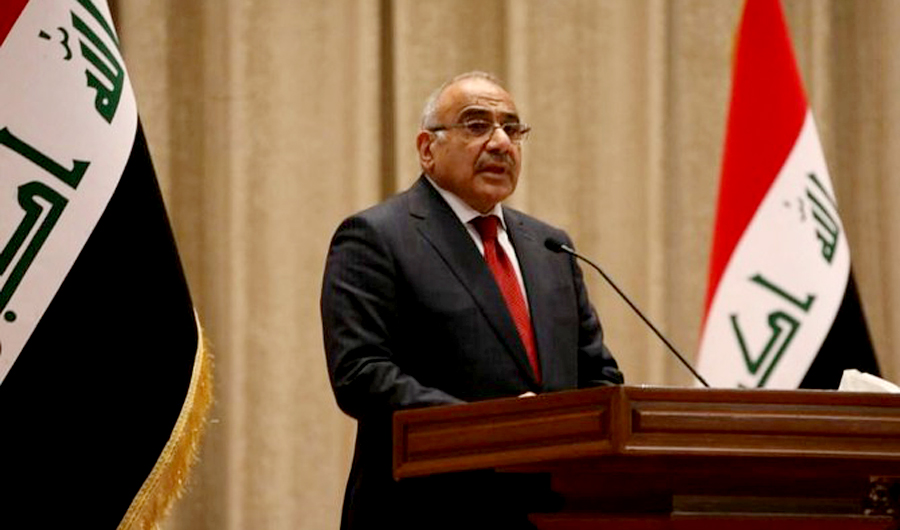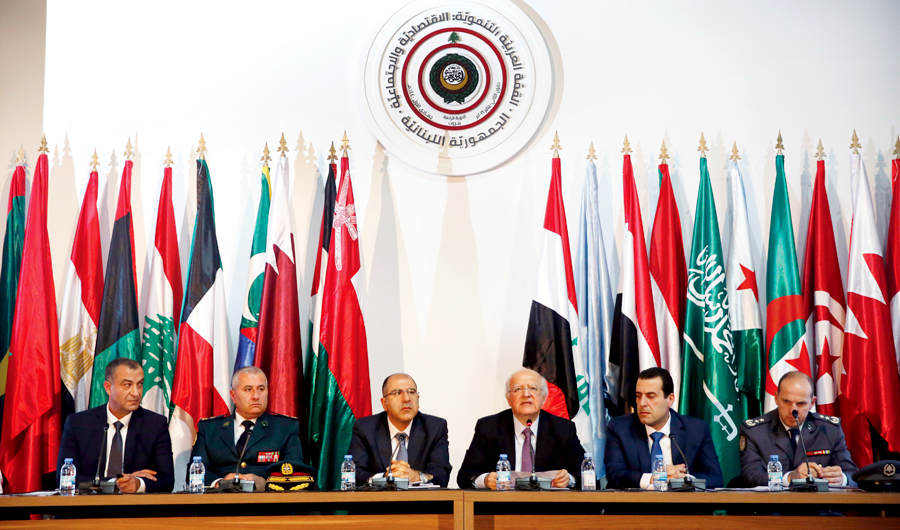BEIRUT: Prime Minister-designate Saad Hariri expressed deep regret for the absence of a Libyan delegation at an Arab Economic Summit taking place in Lebanon later this week.
Hariri was speaking at the Union of Arab Chambers (UAC) headquarters in Beirut on Wednesday.
“Good ties with brothers must prevail,” he said. “We are hoping for this summit to result in practical recommendations for promoting and raising living standards among all Arabs. What makes the summit on Sunday very important is that it will be the first to be held after the launch of the UN Sustainable Development Goals in 2015.”
Libya boycotted the summit after it said members of the Amal militia had disrespected the Libyan flag.
Addressing representatives from several Arab countries, Hariri called for updating decades-old local laws and enabling citizens to travel freely between Arab countries.
He also shed light on the importance of women taking part in politics and national economic development, “as they are capable of mitigating political conflicts.”
Lebanon has reportedly invested $10 million into the event even as it grapples with dire economic woes.
Among the talking points of this year’s summit was poverty.
“The summit is being held amid an atmosphere of change, shifting alliances, a worrying global economic scene and tough local economic conditions,” said Mohammed Choucair, president of the Federation of Chambers of Commerce, Industry and Agriculture.
He called for “immunizing the Arab economy through implementing signed projects, facilitating trade and investment among Arab countries and encouraging creative initiatives.” Many, however, feel the country is not in any position to be funding nor hosting such an event.
“It has been eight months almost and still we have no government,” said Omar Itani, a small corner shop owner feeling the pinch as a result of the economic downturn plaguing the country.
“They spend all this money on hosting a summit, while our homes are getting flooded and roads being pulled apart by these storms. Wouldn’t it be better to use the money to help us citizens?”
Economy and Trade Minister Raed Khoury called on enhancing private sector participation and growth rates.
“The public sector must involve companies from the private sector, as well as banks and funds, in the financing process to help raise growth rates, which slowed considerably in the wake of the Syrian refugee influx,” he said.
Kamal Hassan Ali, assistant secretary-general at the Arab League, and Mohammed Abdo, UAC president, also spoke at the event.
Delegations of Arab ambassadors and delegates had begun arriving into the capital ahead of the weekend summit, including a Saudi delegation headed by Hussein Al-Shawish, economic adviser at the Finance Ministry, a Kuwaiti delegation and a Moroccan delegation, headed by the Moroccan Ambassador to Egypt Ahmed Al-Tazi, who said that Morocco would be represented by Foreign Minister Nasser Bourita.
Lebanon hosted two Arab League summits in 1956 and 2002. Economic and social development summits previously took place in Kuwait in 2009, Sharm El-Sheikh in 2011 and Riyadh in 2013. The 2015 summit, which was scheduled to take place in Tunis, was canceled amid security concerns.
Early in the third quarter of 2018, there were reports that Lebanon was teetering on the brink of economic collapse. Economists said the catalyst was the failure to form a government.
Lebanon’s Central Bank Governor Riad Salameh said the country would launch an electronic platform to enhance share and goods trading, “thus promoting the market to attract liquidity from Lebanon and abroad.”
He said: “We will continue supporting the digital economy, for it is an important sector with a bright future and it highly benefits Lebanon. In 2018, our studies showed that the economic growth was between 1 and 1.5 percent, while in the region, it was at 2 percent. We would have been able to reach the 2-percent rate if the government had been formed on time.”




